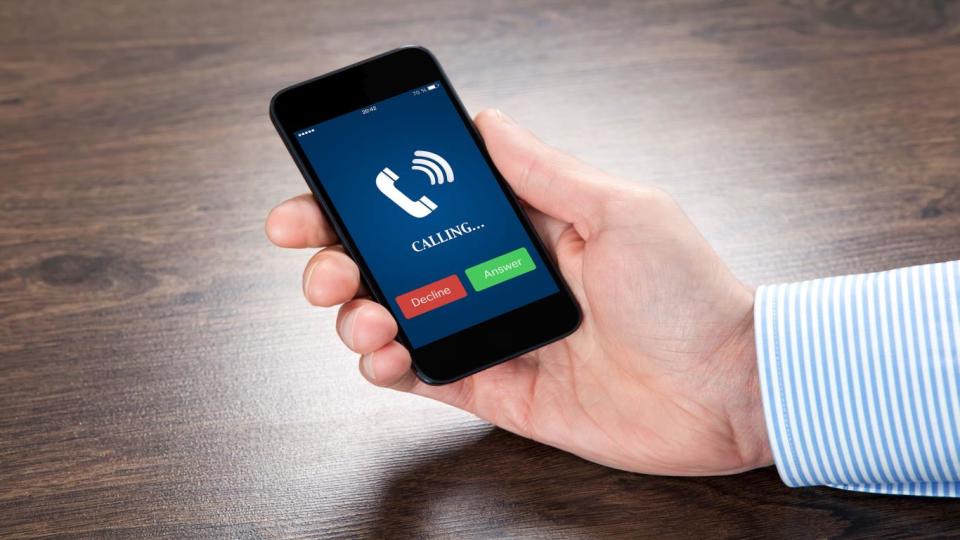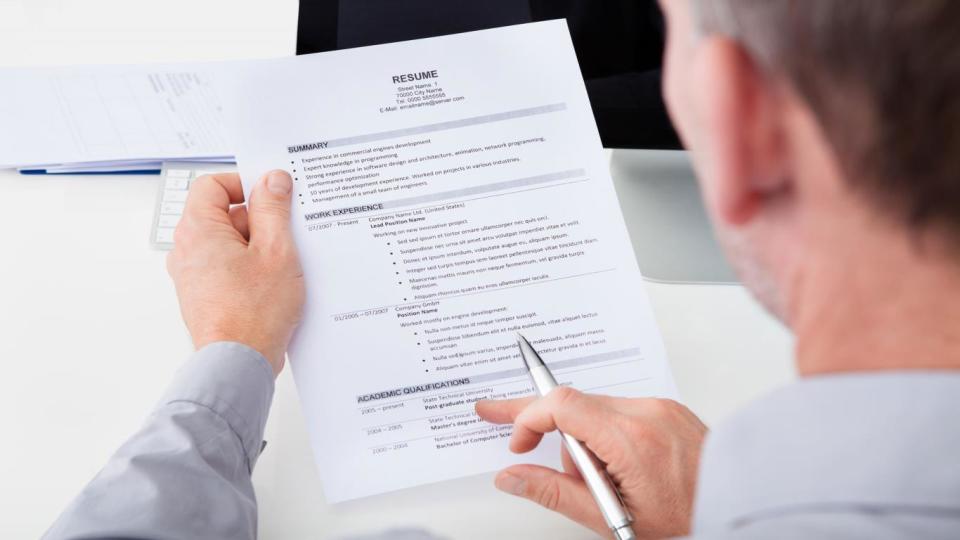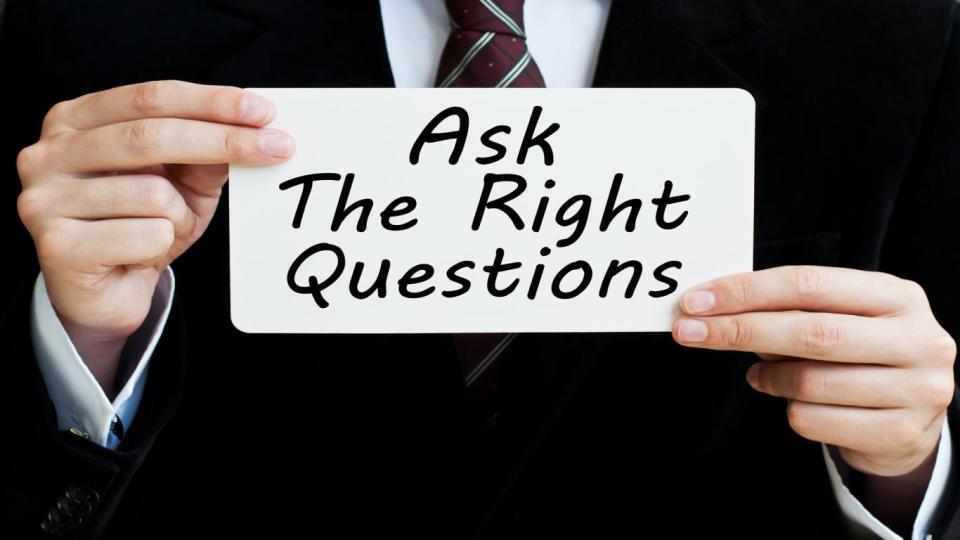Avoid these 20 interview mistakes to land your dream job
Interview mistakes to avoid

Shutterstock
Hunting for a new job can be stressful – and once you've managed to secure an interview for your dream role, the nerves can really start to kick in.
After all, selling yourself in front of a panel of strangers can be an incredibly daunting experience. But with the right preparation, it doesn't have to be.
Read our simple guide to what you must avoid at interview and you might just land the job. You've got this!
Turning up late

eanstudio/Shutterstock
Your potential employer will want to know that your timekeeping is reliable, so turning up late for an interview is a massive no-no.
If you're invited to an online interview, always test the meeting link before you're due to start in case there are any software issues and contact the interviewer in advance if there's a problem.
For an in-person interview, allow enough time for traffic or transport delays. Again, if there's an unavoidable delay, make sure you tell the person who organized the interview that you're held up.
Not looking the part

Shutterstock
Even if your interview is taking place online, it makes sense to dress appropriately. Plan your outfit in advance and make sure that your clothes are clean and ironed.
It shouldn't need saying, but pay attention to your personal hygiene too. Hair should be washed, nails should be clean and trimmed, and you shouldn't have any body odor.
Looking good will help you feel more confident, even in a virtual interview.
Wearing new shoes

Pixel-Shot/Shutterstock
No matter how good they looked when you tried them on in the shop, new shoes are not a good move for a job interview.
If your feet hurt, you'll be on edge and potentially fidgeting in a bid to ease the discomfort, which can make you appear uncomfortable with the interview itself.
Play it safe and wear comfortable shoes that you won't need to give a moment's thought to.
Not reviewing your key points

Shutterstock
Don't assume that the interviewer has committed your CV to memory: after all, they're probably seeing multiple candidates.
It's up to you to promote yourself. Take the time to go over your CV so that when the interviewer asks you questions, you can answer them confidently and make references to your various achievements.
Not putting in the effort

Shutterstock
Don’t send a half-hearted CV or present crumpled printouts of your work.
Instead, tailor your CV to the role you're interviewing for so that relevant projects and responsibilities are highlighted. And don't make the HR manager hunt through an old CV for your best or most appropriate work examples.
Instead, attach them to your application and, if you get through to the interview stage, print your portfolio in color on good-quality paper and present it in a folder.
Having your phone on

Shutterstock
Remember to switch your phone off.
Even if it’s on silent, an alarm you forgot about might suddenly go off in the middle of the interview, which will definitely come across as unprofessional and put you off your stride.
It's worth knowing that a mobile phone alarm will still go off even if your device is in flight mode.
Not speaking professionally

Shutterstock
Make sure that you think about how what you’re saying will come across to the hiring managers.
Before the interview, go over the job description and think about what makes you the best person for the role. Knowing where you fit in, in advance, will boost your confidence.
Avoiding colloquialisms like "wanna" or "fab" and fillers such as "um" or "like" can also make you sound more confident and will make a better impression on the hiring manager.
Poor body language

Shutterstock
Don’t slouch in your seat or make gestures that might suggest disinterest in either being at the interview or what the interviewer is talking about.
Looking around the room rather than at the interviewer, checking your watch, and avoiding eye contact can all make you seem distracted or even apprehensive – not the impression you want to give.
Nervous habits like fiddling with your hair or jewelry should be reined in too, if possible.
Not being engaged

Shutterstock
Do sit up straight and show that you're genuinely engaged with the interviewer.
Behaving in any other way is likely to come off as disrespectful and unprofessional, so make sure you show as much interest as you can. Asking questions, nodding, and tilting your head towards the interviewer can make you appear more approachable, too.
Lying or over-exaggerating

Shutterstock
Don’t lie or exaggerate when answering questions about your past employment and achievements: more likely than not, you'll be found out.
Rather than run the risk of being exposed later, be truthful about your accomplishments. Focus on your achievements and any skills that could be valuable in the new role.
Bringing up personal matters

Shutterstock
Unless asked, don’t bring up your views on controversial topics or any personal issues that you may be going through.
This is not the time to bring up your political views or childcare drama – instead, keep things as focused as possible on the job.
Going off topic

Shutterstock
Listen carefully to the interviewer's questions and try to stay on topic by keeping your answers concise and relevant.
You'll miss out on making your point if you ramble on about things that are irrelevant to what you've actually been asked. If you notice yourself going off on a tangent, take a breath and get back to the question.
Reading out your CV

Shutterstock
Don’t answer the interviewer’s questions by simply regurgitating what you've written on your CV, as it can sound awkward and forced.
Instead, think about the skills you've learned and developed from previous roles. Also, remember that interviewers want to know about the end result and the part you played in it.
Being a gossip

Shutterstock
Don't talk about past employers or colleagues in a negative or gossipy way: it's likely to set alarm bells ringing with your prospective employer.
Even if you can't wait to leave, try to avoid complaining about your last or current employer. Your reason for applying for the role you're interviewing for should always be a positive one.
Not discussing your skills

Shutterstock
If your work experience to date has come with its share of challenges, make sure that you use this as an opportunity to positively discuss how you overcame them.
In a clear and objective manner, share what you learned from difficult situations in your previous role and how you believe these acquired skills can be used in this role.
Not making eye contact

Shutterstock
Don’t forget to smile and make eye contact.
A big part of your interview will be finding out if you and the role are a good fit for each other, so showing your friendly side will help the interviewers decide how likely you are to gel with the rest of the team.
Not being confident

Shutterstock
On that note: show your confidence by maintaining eye contact while speaking to the interviewers.
Smiling during the meeting and addressing your answers directly to the person who asked the question (if you're being interviewed by a panel) will show that you're friendly and also suggest that you're relaxed and at ease... even if the opposite is true!
Not taking time to reply

Shutterstock
Don’t draw blanks or answer questions with a simple "yes" or "no."
Take your time to give a proper reply. There's nothing wrong with buying yourself extra time with a "Let me think about that" while you get an answer straight in your mind. This is particularly applicable if you've been asked a tricky question.
Not providing specific examples

Shutterstock
Don’t use vague and meaningless phrases such as "I’m a good team player" and "I’m a people person."
Instead, provide specific examples of how you’ve worked as part of a team or have developed the people you’ve managed in the past.
Not asking the right questions

Shutterstock
Avoid an awkward silence when you're asked "any questions?" at the end of the interview by preparing a few in advance.
Remember that asking intelligent questions about the company and the role shows that you’re interested in the job and that you've done the appropriate research.
For example, you could ask about the onboarding process, who you would report to, or what opportunities there might be for further training.
Once your questions have been answered, end by reiterating your interest in the role, and by asking about the next steps in the process. Good luck!
Got an online interview? Discover our top tips for virtual job interview success

 Yahoo Finance
Yahoo Finance 